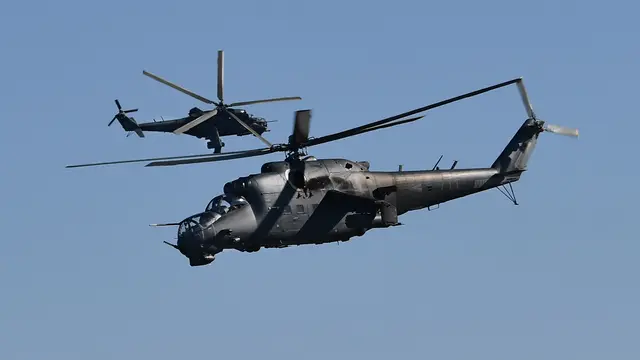The EU must provide funds to enable the faster movement of military forces across Europe, defense ministers from four Eastern European countries have said.
EU and NATO members Latvia, Lithuania, Poland and Romania said Brussels could undermine European Union ambitions by cutting funding for the "military mobility" program.
The warning came as foreign ministers of the countries in the Bucharest Nine – a group of countries on the eastern edge of NATO, which also includes Czechia, Slovakia, Hungary, Estonia and Bulgaria – met in Vilnius to assess their unity on the security challenges along NATO's eastern flank. The EU is currently gearing up for a new round of budget talks.
The EU and NATO member countries said Brussels could undermine European Union ambitions by cutting funding for the program, including measures to quickly move troops and equipment in the event of a conflict with Russia.
According to the AFP news agency, the European Commission's latest "technical document" on the EU's 2021-27 budget proposed zero funding for the military mobility program.
"The EU's ambition to become a stronger player in dealing with most imminent security risks will be seriously compromised if military mobility were left without adequate funding from the very start," said the ministers in a letter.
The countries urged the European Commission president, Ursula von der Leyen, and other senior EU officials "to respect the commitment" to the program, which they said was a "flagship initiative for NATO-EU cooperation."
In 2018, the EU Commission set out plans to improve infrastructure and remove legal hurdles to allow faster movement of military troops and vehicles across the continent, a vital security issue for nations at the EU and NATO's eastern flank.
Despite the fact that full-scale conflict between Russia and NATO is considered highly unlikely, some experts have warned that increased military activity in the region increases the chances of unintended accidents.
Last month, Lithuania's intelligence agency warned that, in the event of conflict, Russia's capability to launch an attack with 24 to 48 hours' notice and centralized decision-making could give it a "military advantage over its neighbors in the short term."
 简体中文
简体中文

